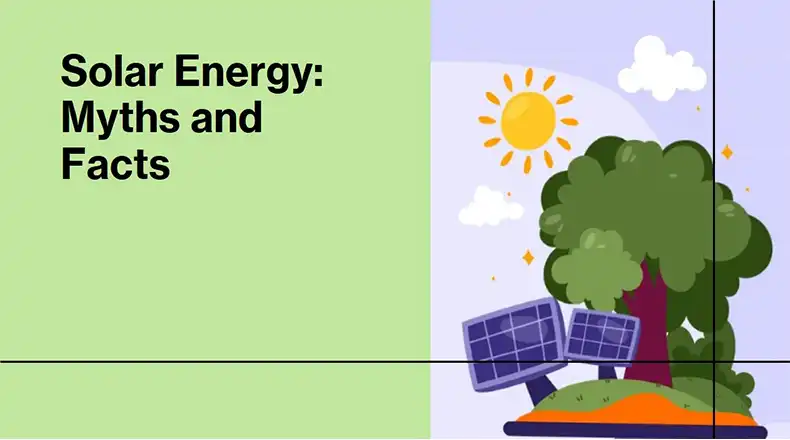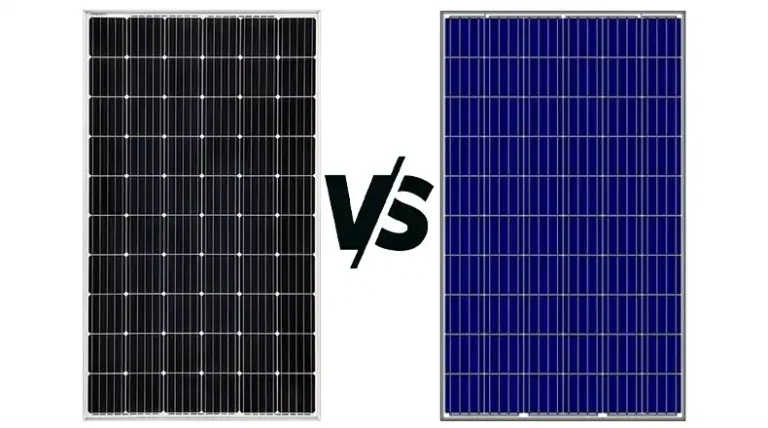Are Solar Energy Bad for The Environment? Explained
Hey there, folks! Today, we’re tackling a question that’s been buzzing around the renewable energy sphere whether solar energy is good or bad for the environment. Now, I know what you might be thinking, “Isn’t solar energy supposed to be the eco-friendly savior?” Well, let me tell you, it’s not as black and white as you might think.
But first, let’s take a step back and appreciate the fact that we’re even having this conversation. A few decades ago, the idea of harnessing the sun’s power for electricity was just a pipe dream. But thanks to some brilliant minds and technological advancements, we now have the ability to tap into this abundant and renewable source of energy.
Now, let’s find out solar energy’s environmental impact. Buckle up, folks, because it’s a rollercoaster ride of pros and cons.

Benefits of Solar Energy in the Environment
Let’s start with the good stuff, shall we? Solar energy has some serious eco-friendly credentials that make even the most hardened environmentalists swoon.
Reducing Greenhouse Gas Emissions
Climate change – it’s the monster under the bed of our generation. Traditional energy sources like coal and natural gas are notorious for releasing greenhouse gasses during operation. These gasses act like a giant thermal blanket, trapping heat in the atmosphere and causing the planet to warm. Not exactly a recipe for a happy and healthy planet.
Solar energy, on the other hand, is a champion for clean air. During operation, solar panels don’t produce any greenhouse gases. Imagine a world where giant coal plants spewing out pollutants are replaced by quiet solar panel farms soaking up the sun. It’s a clear win for a cleaner future.
The impact is significant. Research indicates that one solar panel can eliminate carbon emissions equivalent to ten trees. Additionally, solar panels save approximately 50 grams of carbon dioxide for every kilowatt-hour of electricity generated. On average, a residential solar system can reduce carbon emissions by 3-4 tons each year.
Renewable Resources and Sustainability
Fossil fuels are like that delicious birthday cake – a temporary source of joy with a guaranteed sugar crash. Oil and gas are finite resources, meaning they’ll eventually run out. Yikes! Solar energy, however, is a renewable resource. The sun isn’t going anywhere anytime soon (at least not for another 5 billion years or so), so we can keep harnessing its power for generations to come.
Think of it like this: fossil fuels are like a one-time-use water bottle, convenient but ultimately wasteful. Solar energy, on the other hand, is your trusty reusable mug. Sustainable and good for the planet in the long run!
The concept of solar energy being a renewable resource goes beyond just generating electricity. Solar power can be used for desalination, powering electric vehicles, and even heating homes. This reduces our reliance on fossil fuels across multiple sectors, creating a more sustainable energy ecosystem.
Low water consumption
Water is a precious resource, and traditional energy sources can be real guzzlers. Nuclear and coal-fired power plants, for example, require massive amounts of water for cooling purposes. In drought-stricken regions, this water usage can put a strain on already limited resources.
Solar panels, however, are water warriors. They require minimal water for maintenance, making them a drought-friendly option. Imagine a scenario where a giant power plant sucks up a lake’s worth of water vs. a solar panel farm happily soaking up the sun. Solar energy wins again for water conservation!
Studies show solar power can reduce water usage by up to 15% compared to coal and natural gas power plants. This makes solar a particularly attractive option in areas facing water scarcity.
Environmental Concerns of Solar Energy
While solar energy offers numerous environmental benefits, it’s important to acknowledge and address the potential concerns associated with its production and use.
Manufacturing Impact
No manufacturing process is perfect, and solar panel production is no exception. The process requires energy and materials, which can have an environmental impact. Extracting raw materials like silicon and processing them into solar cells can be energy-intensive. Additionally, some of the chemicals used in manufacturing photovoltaic cells and panels need to be handled carefully to avoid environmental harm if they leak or are disposed of improperly.
The solar industry is constantly innovating to reduce the environmental footprint of manufacturing. Companies are finding ways to use less energy during production, explore more sustainable materials, and develop better recycling practices for leftover materials and scraps.
Think of it like this: manufacturing a solar panel might be a little messy at first, but the industry is working on cleaning up its act. Research is ongoing to develop new manufacturing processes that are less energy-intensive and use fewer hazardous materials.
Solar Panel Disposal
Solar panels are incredibly durable, lasting for decades. But eventually, they’ll reach the end of their lifespan. The good news? Solar panels can be recycled! However, it’s important to do so responsibly because they contain some materials that can be harmful if not handled properly. For example, some older solar panels contain lead or cadmium, which are toxic metals. If these materials end up in landfills and leak, they can contaminate the soil and water.
The solar industry is also working on improving recycling technologies to make the process more efficient and cost-effective. New techniques are being developed to separate the different materials in solar panels, such as glass, aluminum, and silicon. These can then be recycled and used to manufacture new products.
Just like that old soda can, solar panels can be given a new life through recycling. The industry is working on making it easier than ever to do so responsibly. This not only reduces the environmental impact of solar energy but also helps conserve resources.
End Notes
Solar energy presents a complex picture, but with responsible practices, its benefits outweigh the challenges. By implementing strict regulations, promoting recycling, and improving manufacturing processes, we can harness the sun’s power while minimizing environmental impact. Remember, the transition to sustainable energy is a journey, and embracing solar brings us closer to a greener future. If you have any questions, leave a comment below. I’ll be happy to provide further insights. Every step towards solar energy is a step towards a cleaner world. So let’s unleash the sun’s renewable powerhouse and create a better tomorrow, one solar panel at a time. Wishing you a wonderful day filled with clean energy!







